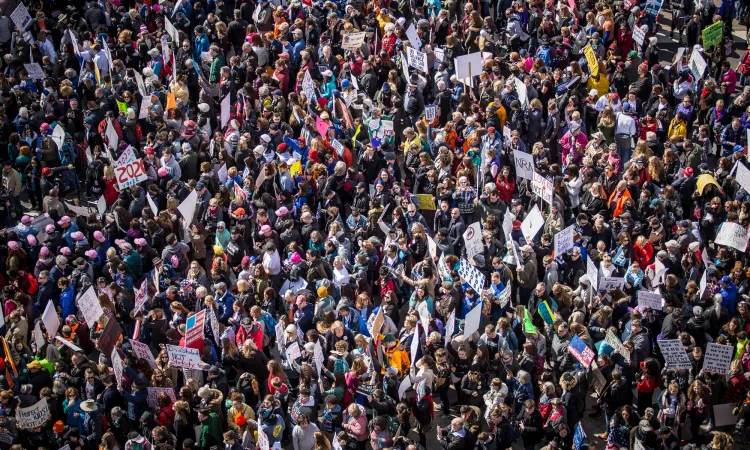Arshad Mahmood Awan
Throughout human history, the idea of “rule by the people” has captured the imagination of philosophers, revolutionaries, and citizens alike. From ancient Greek city-states to the modern democratic nation-state, societies have repeatedly claimed that sovereignty rests with the people. However, a closer analysis of historical and political realities shows that true power almost always lies with a small, influential elite. The concept of “elite rule” is neither accidental nor temporary; it is a structural reality that shapes governance, policy, and the evolution of civilizations.
🌐 Website: http://republicpolicy.com
Elite influence has been the guiding force behind the rise and organization of societies for millennia. In ancient Greece, often cited as the birthplace of democracy, decision-making was in practice reserved for a small group of male citizens, while women, slaves, and foreigners were excluded. Moving forward to the era of the Roman Republic and Empire, senators, patricians, and generals formed the dominant ruling class. Even in medieval Europe, the spark of intellectual, religious, and architectural transformation came from small assemblies of elites, such as those in Charlemagne’s Aachen court. These influential figures created policies, sponsored art, and steered economic growth — not through mass participation, but through concentrated decision-making.
▶️ YouTube: https://www.youtube.com/watch?v=uL3-dG9koD4&t=229s&ab_channel=RepublicPolicy
History repeatedly shows that elite power is not inherently negative. In many instances, elite-driven governance has laid the foundations for societal progress. Charlemagne’s educational reforms, the architectural marvels of the Renaissance, and the codification of laws in various civilizations were largely elite-led projects. The mass population benefited indirectly from the stability, infrastructure, and institutions created by these few. In political theory, Plato went a step further, arguing that elite governance was not just a reality but an ideal. In his seminal work, The Republic, he envisioned a society ruled by “guardians,” a class of philosopher-kings who would govern selflessly and rationally, prioritizing the well-being of the state over personal gain.
🐦 Twitter/X: https://twitter.com/RepublicPolicy
Plato’s model of elite rule, however, came with critical moral conditions. These guardians, while possessing full decision-making power, were to be insulated from greed, property ownership, and familial distractions. They would live communally, share resources, and dedicate their lives solely to governance and the pursuit of wisdom. By stripping elites of personal economic stakes, Plato aimed to ensure that the concentration of power would not translate into corruption or exploitation. His model underlines an important lesson for modern societies: elite rule may be inevitable, but its legitimacy depends on accountability, ethical restraint, and public welfare.
📘 Facebook: https://facebook.com/RepublicPolicy
Modern states, including those that pride themselves on being democratic, are not immune to this structural reality. Even in the 21st century, political, economic, and cultural decisions are overwhelmingly influenced by a small group of actors — cabinet ministers, corporate magnates, media owners, top bureaucrats, and thought leaders. Elections may empower citizens to select representatives periodically, but policy formation, legal interpretation, and administrative execution remain in the hands of a few. This “soft oligarchy” persists in different forms worldwide, whether in liberal democracies, hybrid systems, or authoritarian regimes.
🎵 TikTok: https://www.tiktok.com/@republic_policy
The notion of “power to the people” is thus often more aspirational than real. Public sentiment may influence elites, but it rarely governs directly. Consider the structures of modern governance: legislatures are dominated by professional politicians, executives are controlled by narrow leadership circles, and judiciaries interpret laws insulated from mass influence. Public participation is largely confined to voting, occasional protests, or social media expression, while real policy direction remains elite-driven. Understanding this reality is not cynical; rather, it is essential for building honest and effective systems of governance.
🌐 Website: http://republicpolicy.com
From a governance perspective, the challenge is not to eliminate elite rule — which history suggests is impossible — but to regulate and legitimize it through transparency, institutional checks, and public accountability. A society thrives when its elites act as custodians of the collective interest rather than exploiters of privilege. This requires both structural reforms and cultural shifts. Modern constitutions, separation of powers, media freedom, and civil society activism exist precisely to ensure that elite rule does not morph into unchecked tyranny.
▶️ YouTube: https://www.youtube.com/watch?v=uL3-dG9koD4&t=229s&ab_channel=RepublicPolicy
In Pakistan’s context, elite influence is starkly evident across political, judicial, and economic spheres. Decisions regarding legislation, policy reforms, and national priorities are typically shaped in small drawing rooms and closed meetings rather than through mass consultation. This does not mean that citizens lack agency, but it highlights that democratic rituals alone cannot replace the structural dominance of elites. Political empowerment in Pakistan will remain incomplete until these elites are both responsive to public needs and subjected to credible institutional scrutiny.
🐦 Twitter/X: https://twitter.com/RepublicPolicy
Moreover, the Pakistani experience demonstrates the dangers of elite capture without accountability. When ruling classes prioritize self-interest over collective welfare, social inequality deepens, public trust erodes, and governance weakens. Episodes of political instability, corruption scandals, and policy reversals are often rooted in the misuse of concentrated power. The lesson for Pakistan — and other similar states — is to acknowledge the permanence of elite rule but ensure it is bound by laws, ethics, and transparent oversight.
📘 Facebook: https://facebook.com/RepublicPolicy
In conclusion, while the romantic notion of pure “people’s power” is appealing, the reality is that societies have always been and will continue to be shaped by elite leadership. The task for modern states is to refine this inevitable arrangement into a system that combines competence with accountability. Plato’s guardians may never perfectly exist, but the spirit of his vision — ethical and service-oriented elites — remains crucial for a just and functional society. Recognizing the structural inevitability of elite rule allows nations to design governance systems that protect public interest while channeling elite influence toward constructive ends.
🎵 TikTok: https://www.tiktok.com/@republic_policy
















